10 GPTs for Digital Inclusion Powered by AI for Free of 2026
AI GPTs for Digital Inclusion refer to the deployment of Generative Pre-trained Transformers technology tailored to bridge digital divides and foster inclusivity. These tools leverage AI's advanced capabilities to adapt and provide solutions in promoting accessibility, literacy, and engagement in the digital realm. By offering resources and services designed to meet diverse needs, GPTs play a crucial role in making technology more accessible and comprehensible to all, thereby enhancing participation in the digital world.
Top 10 GPTs for Digital Inclusion are: VisionScribe,Web Accessibility Guide,Alt Text Bot,Web Toegankelijkheid Assistent,Barrierefreiheits-Prüfer 2025,City Chief Information Officer (CIO) Bot,Assistent Toegankelijkheid van Webcontent (WCAG),Accessible Art Tags v0.2,Accessibility Helper,HTML5 Accessible Navigators
VisionScribe
Enabling Vision through AI

Web Accessibility Guide
Empowering Inclusive Digital Experiences with AI

Alt Text Bot
Making Images Speak with AI
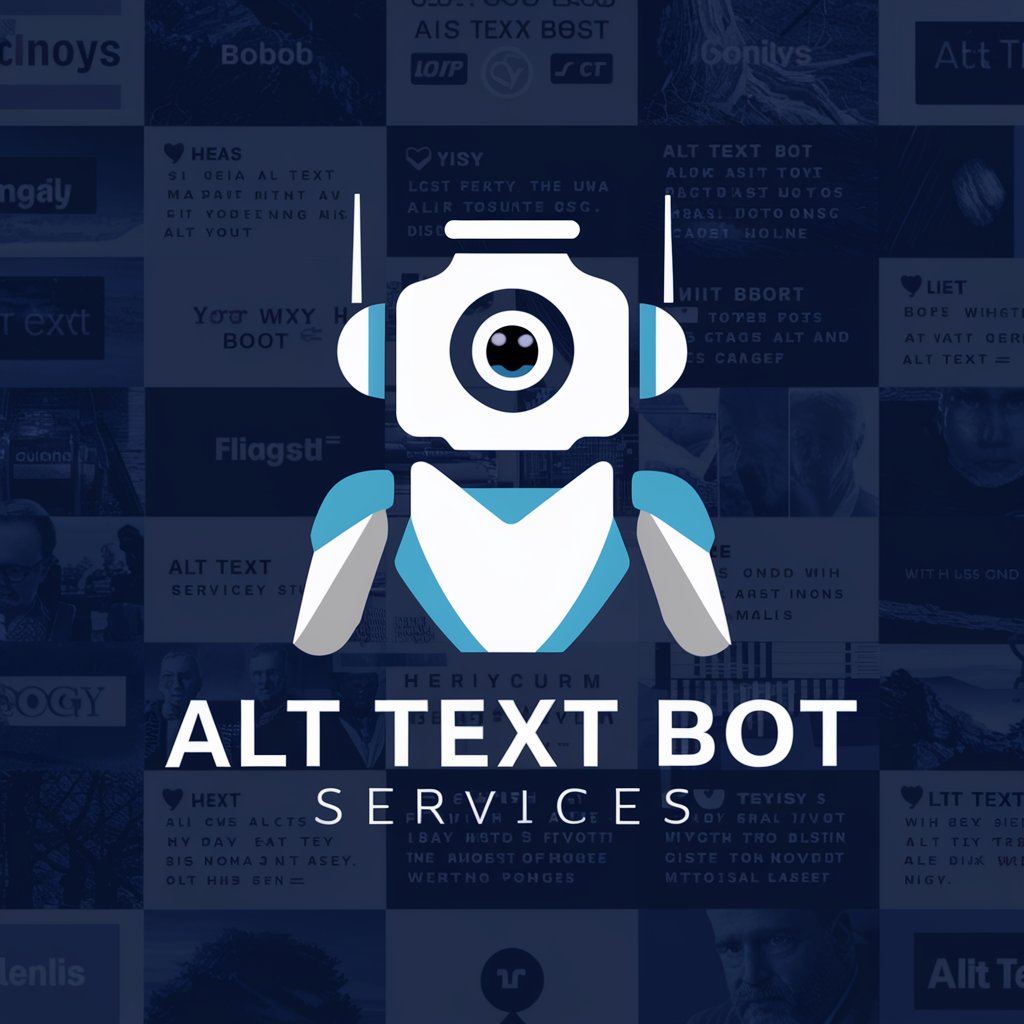
Web Toegankelijkheid Assistent
Empowering digital accessibility with AI
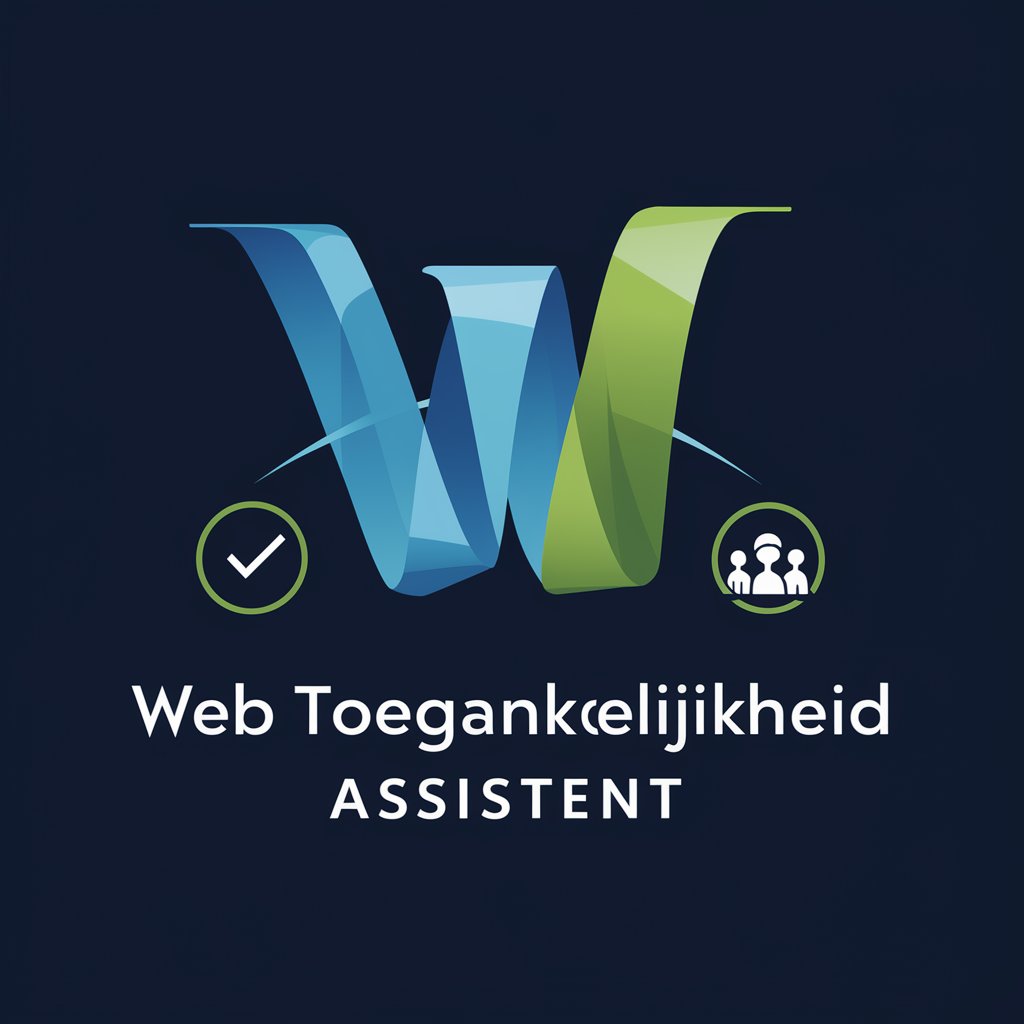
Barrierefreiheits-Prüfer 2025
Empowering digital inclusion with AI-driven accessibility insights.
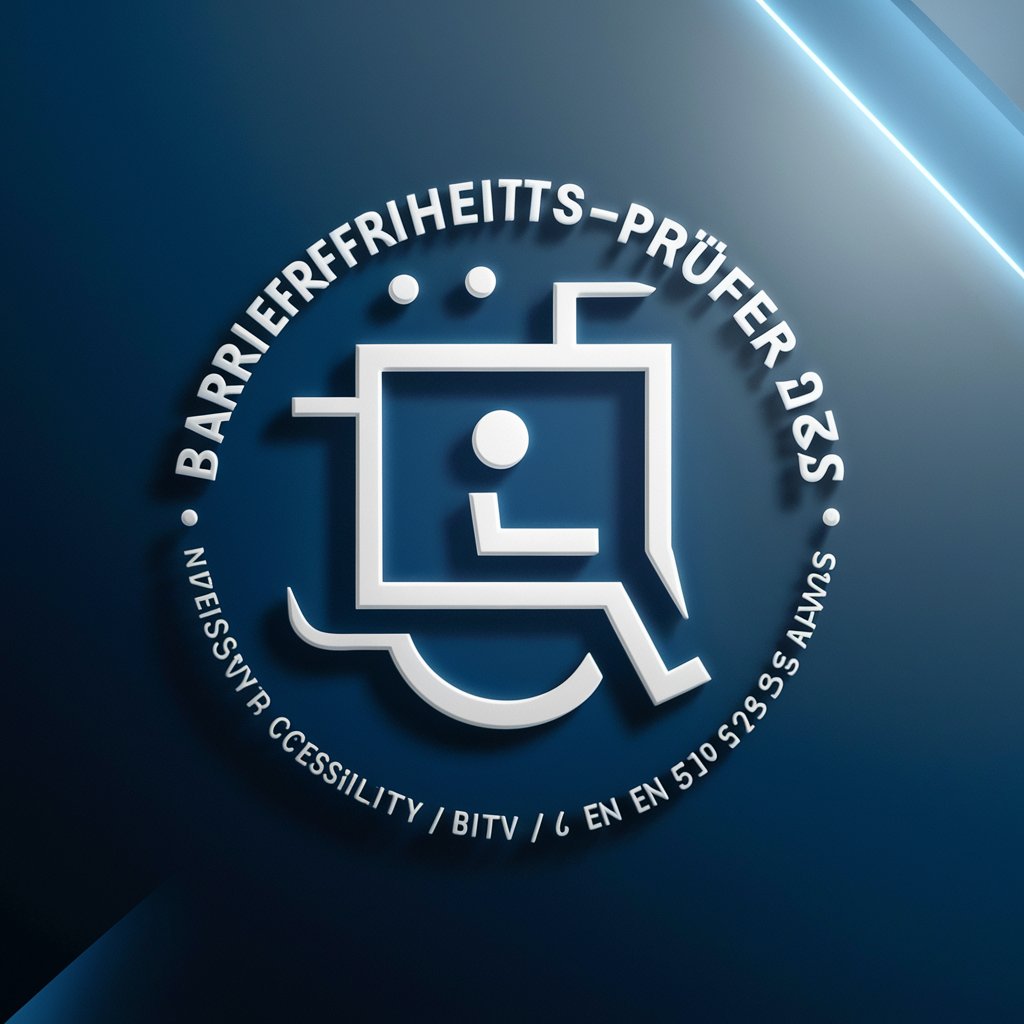
City Chief Information Officer (CIO) Bot
Empowering Smart Cities with AI
Assistent Toegankelijkheid van Webcontent (WCAG)
Empowering web accessibility through AI
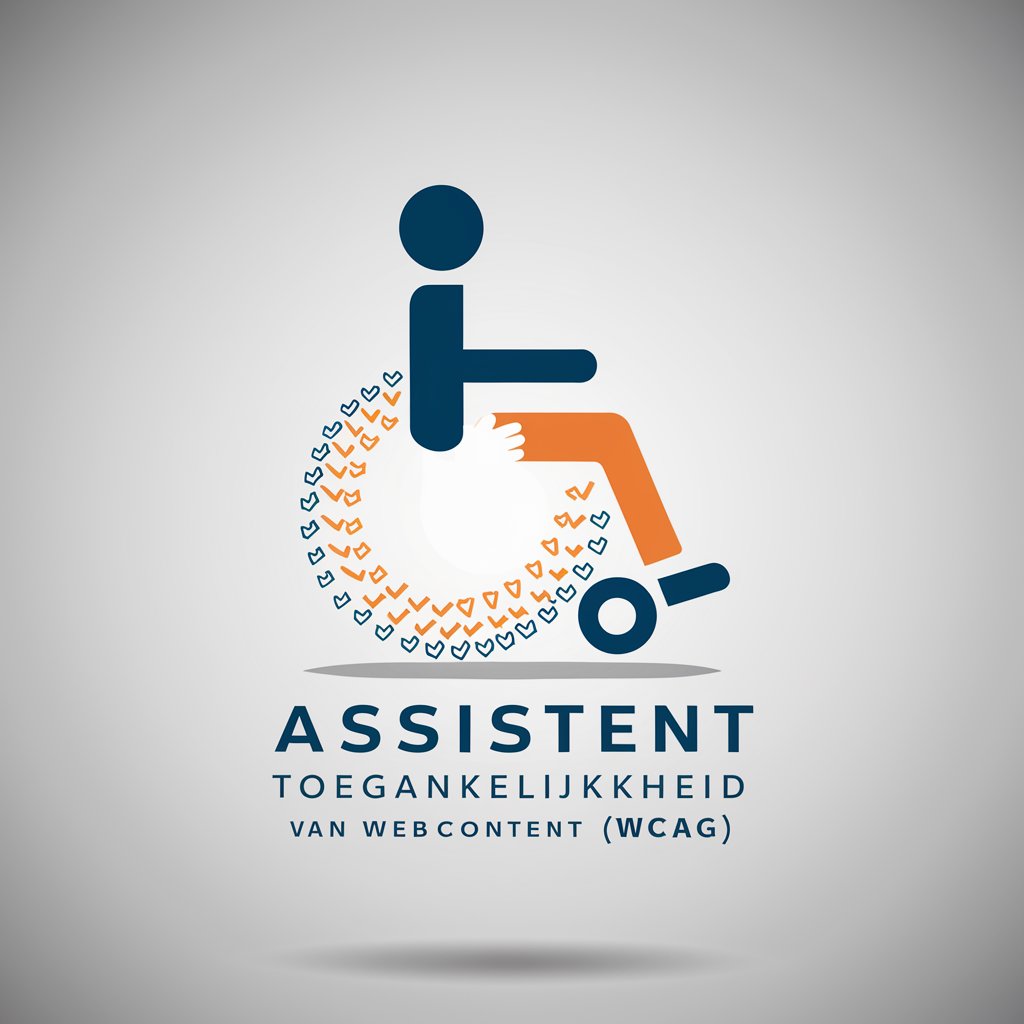
Accessible Art Tags v0.2
Bringing Art to Life with AI
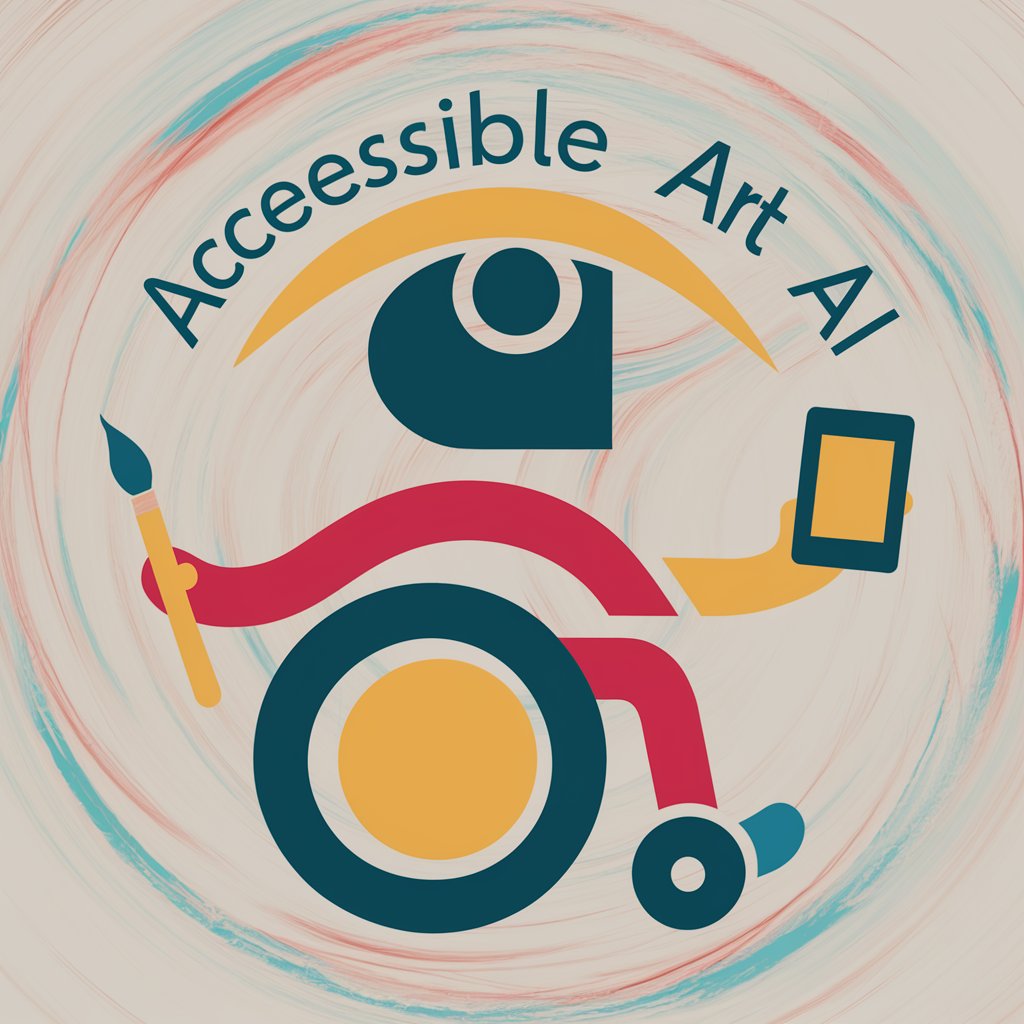
Accessibility Helper
Empowering digital accessibility with AI
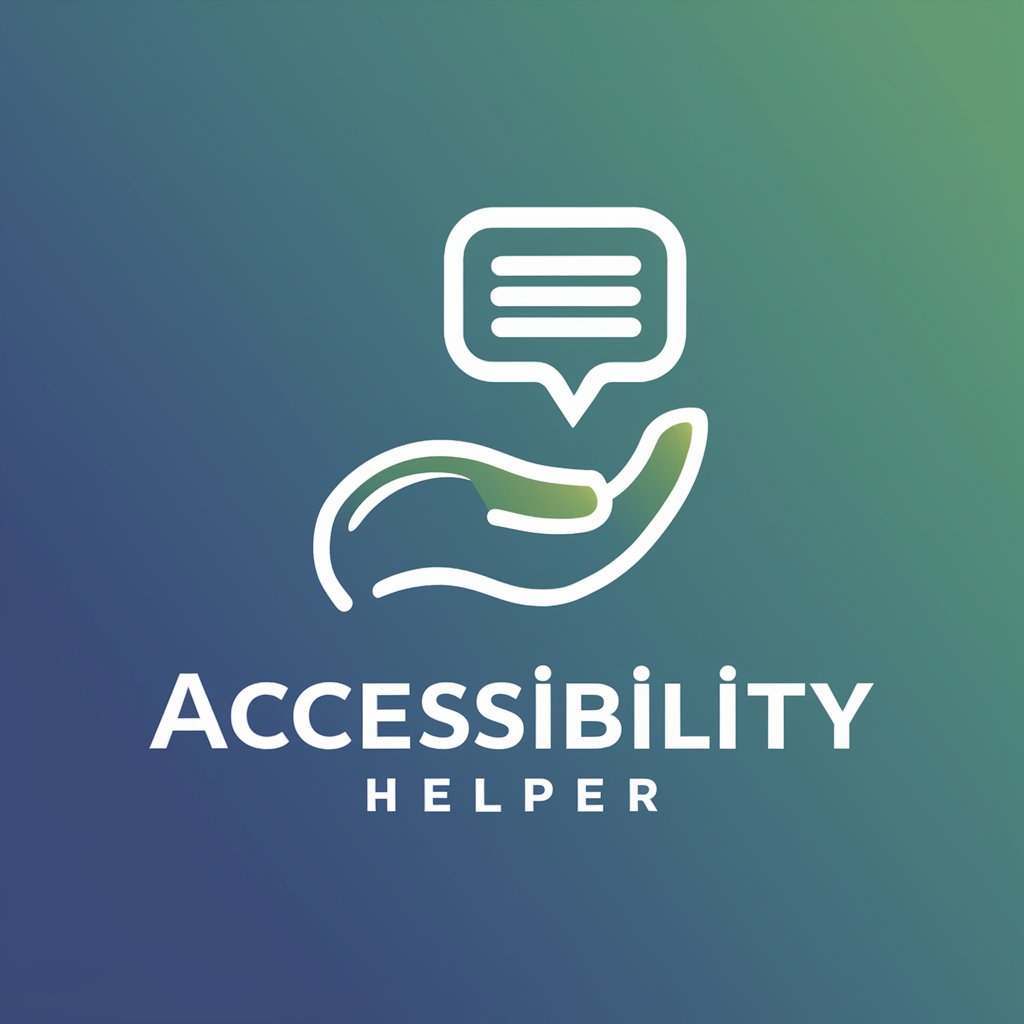
HTML5 Accessible Navigators
AI-Powered Web Navigation Accessibility
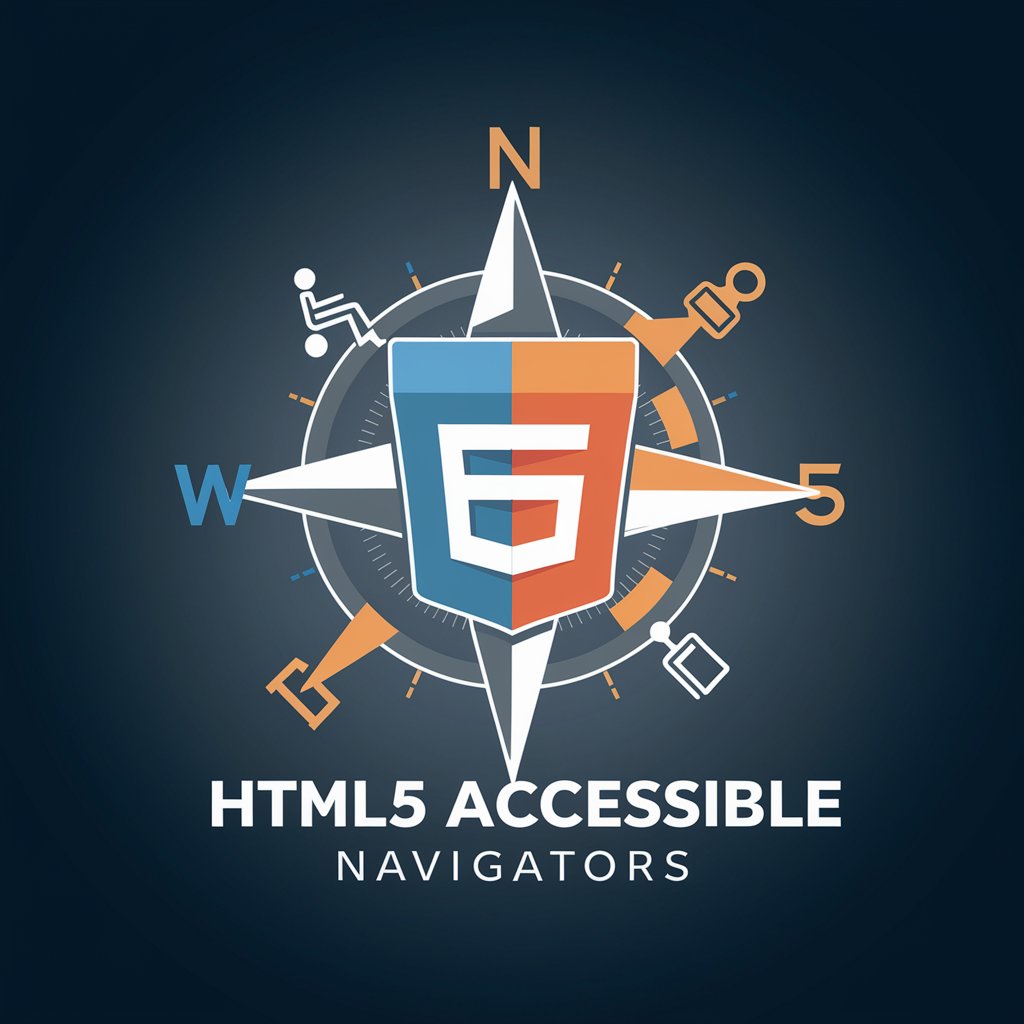
Distinctive Attributes and Functions
AI GPTs for Digital Inclusion stand out for their adaptability across various levels of digital engagement, from basic digital literacy to advanced technical support. Key features include natural language understanding for easier interaction, multi-language support to cater to diverse linguistic groups, personalized learning pathways for skill development, and robust data analysis to identify and address gaps in digital access. Additionally, their capability to generate images, search the web, and provide tailored content recommendations makes them invaluable for enhancing digital inclusivity.
Who Benefits from AI GPTs in Digital Inclusion
These AI GPTs tools cater to a wide audience, including digital novices seeking to improve their tech literacy, developers looking for inclusive technologies, and professionals in the field of digital inclusion. They offer an accessible entry point for individuals with limited coding skills, while also providing advanced customization options for tech-savvy users, thus ensuring that anyone interested in digital inclusivity can leverage these tools to their advantage.
Try Our other AI GPTs tools for Free
Cruise Planning
Discover how AI GPTs transform cruise planning with personalized itineraries, real-time updates, and seamless integration for an effortless vacation planning experience.
Dream Patterns
Discover the transformative potential of AI GPTs for Dream Patterns, designed to decode the mysteries of dreams through advanced analysis and interpretation.
Star Trek Lore
Explore the universe of Star Trek with AI GPTs tailored for Star Trek Lore. Engage with smart tools capable of answering questions, creating content, and bringing the Star Trek universe to life for fans and creators alike.
Agency Insights
Discover how AI GPTs transform agency insights with adaptable, powerful analytics tailored for data-driven decision-making in a rapidly evolving environment.
Retail Disputes
Discover AI GPT tools for Retail Disputes: tailored AI solutions designed to streamline and resolve retail conflicts efficiently, enhancing customer satisfaction and operational harmony.
Training Tool
Discover the transformative power of AI GPTs for Training Tool, revolutionizing how we learn, teach, and engage with educational content through personalized, adaptive, and interactive experiences.
Expanding Horizons with AI GPTs
Beyond their core functionalities, AI GPTs for Digital Inclusion offer expansive possibilities for customization and integration, making them versatile tools in various sectors. Their user-friendly interfaces facilitate broader adoption, while their adaptability allows for specialized applications in education, healthcare, and public services, showcasing how AI can be a catalyst for inclusive digital transformation.
Frequently Asked Questions
What exactly are AI GPTs for Digital Inclusion?
AI GPTs for Digital Inclusion are specialized AI tools designed to facilitate access, understanding, and engagement with digital technologies, aiming to reduce disparities in digital literacy and accessibility.
How do these tools promote digital inclusivity?
They offer customized learning paths, support multiple languages, enable easy-to-use interfaces, and provide relevant digital content, making technology more accessible to diverse populations.
Can individuals without programming knowledge use these tools?
Yes, these tools are developed with user-friendly interfaces that do not require prior programming experience, making them accessible to a broad audience.
How can developers customize these GPT tools for specific needs?
Developers can access the tool's API or scripting capabilities to tailor functionalities, integrate with existing systems, or create new applications for targeted digital inclusion initiatives.
Are there language limitations with AI GPTs for Digital Inclusion?
These tools are designed with multi-language support to cater to users worldwide, although the range of languages supported can vary depending on the specific tool.
Can these tools integrate with existing digital platforms?
Yes, many AI GPTs are designed to be interoperable, allowing for seamless integration with existing platforms and services to enhance digital inclusivity.
What kind of support do AI GPTs provide for digital novices?
They offer simplified, jargon-free interactions, personalized learning modules, and intuitive navigation aids to help novices become digitally literate.
How do these tools stay updated with the latest in digital inclusion?
AI GPTs for Digital Inclusion continuously learn from interactions and feedback, incorporating the latest research, trends, and user needs into their functionalities to remain effective and relevant.